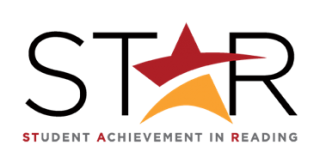
STAR (Student Achievement in Reading) focuses on building the reading skills for adult learners at the intermediate level grade level equivalents (GLE 4-8.9). National student outcome data shows that pre-adult secondary education (ASE) students make measurable gains in reading achievement when STAR’s structures and practices are implemented.
Learn the GLE-appropriate evidence-based reading instruction (EBRI) strategies and practices, structured into a coherent and comprehensive program, that will enable you to support intermediate readers in making measurable gains.
The STAR Institute will run next year, 2021-22, starting in the early Fall.
- Teachers and tutors of reading at GLE 4-8.9
- Directors and director-designees of STAR programs
This professional development activity/course is designed for:
STAR training takes place over several months, and includes three synchronous online sessions, 30 self-paced online modules, an online community of practice, and technical assistance/coaching.
ACLS has invested in providing STAR training since 2010 because the evidence base has proven that a STAR classroom, operating within the recommended programmatic supports, is a highly successful instructional model for intermediate readers.
The foundation for STAR is the body of evidence-based reading instruction (EBRI). EBRI strategies have been shown to be effective in helping adult learners make academic gains. WIOA requires that all programs offer instruction in the essential components of reading to all levels of ABE, from GLE 0-12. STAR training will help you to fulfill that requirement for GLE 4–8.9.
Consistent with ACLS’ focus on outcomes rather than processes, program participation in STAR is strongly recommended but not required. Programs opting to participate in STAR training must complete all components:
- Participation in and completion of the synchronous sessions and the online modules
- Administration of diagnostic reading assessments to determine and prioritize individual learner’s areas of strengths and needs in alphabetics, fluency, vocabulary, and comprehension
- Implementation of direct and explicit instruction, using the most relevant evidence-based reading instruction (EBRI) techniques
- Instruction that is continuously monitored by teachers and learners to gauge its effectiveness (formatively assessed)
- Participation of STAR teachers in annual site observations by MA STAR-certified trainers, and implementation of their feedback
Because of the programmatic aspects of STAR, new directors and/or their designees need to attend. There is an introductory recorded webinar just for you.
For more information see https://www.sabes.org/star.
TO REGISTER, write to Evonne Peters (epeters@qcc.mass.edu).
- Conduct diagnostic assessments
- Group students according to instructional needs based on the results of the diagnostic assessments
- Organize an instructional reading routine
- Plan and deliver evidence-based reading instruction (EBRI) in the essential components of reading—fluency, alphabetics, vocabulary, and comprehension—for intermediate level learners (GLE 4–8.9)
- Use explicit instruction methodologies
- Monitor and adjust instruction as students’ needs change
- Revise programmatic structures that would support STAR implementation
Upon completion of this professional development activity/course, you will be able to:
MA
United States


